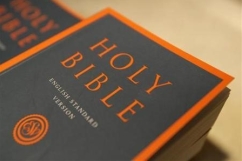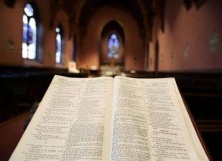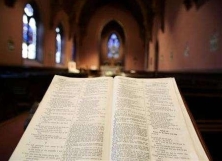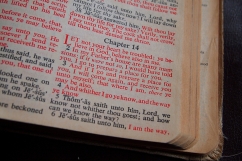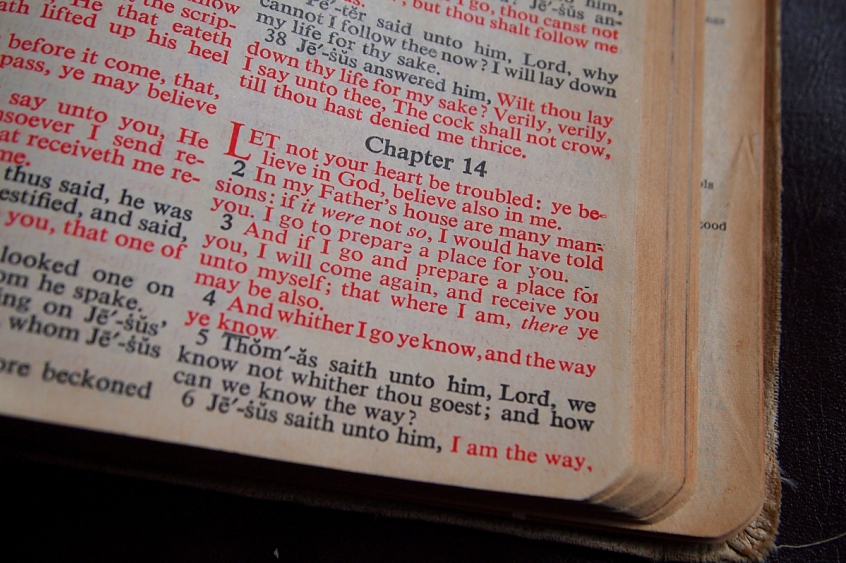
More than 30 years ago I found myself in the tropical rain forests of Nigeria, struggling to understand the questions which African students were raising in my classes. I happened to meet a local Catholic theologian and shared with him my difficulties in coming to terms with the issues arising in a culture so different to my own. He replied with words that have remained with me ever since: "The problem with Western theology," he said, "is that it jumps far too quickly from the cradle to the cross, and so misses out the life of Jesus, the teacher, healer and exorcist, which in our situation is a crucial element of the good news".
The years spent in sub-Saharan Africa proved to be a turning point in my life in all kinds of ways, but perhaps most of all because they revealed the extent to which my reading of the Bible and my understanding of the gospel had been shaped by modern, Western culture. This had left me with unrecognised blind spots which screened out crucial aspects of the message of the New Testament. Across the intervening years I have been engaged in an ongoing quest for a deeper understanding of what Karl Barth once described as "the strange world of the Bible". With the decline of European Christianity and the social and cultural marginalisation of once-powerful church bodies, the need to listen afresh to the Bible – paying particular attention to the contexts in which it came into existence, and then to ask how the message it contains might be communicated today – has become more urgent than ever. In the words of Tom Wright: "For too long we have read Scripture with nineteenth century eyes and sixteenth century questions. It's time to get back to reading with first-century eyes and twenty-first century questions".
If Christians in the modern West are to take up that challenge they will need to engage in a two-stage process. First, to listen to the message of Jesus within the context of the first-century world in which he lived and died, before then facing the task of communicating the gospel in the globalised world of today. With regard to the first of these stages, I suggest we must learn to practice 'deep listening' to the Bible, allowing the text to speak its own language and recognising the danger that our modern preconceptions may have created distorting lenses as we read Scripture. Such listening requires that we take biblical scholarship seriously, but also that we recognise the insights possessed by non-Western Christians (like my students in Nigeria) whose cultures are in fact far closer to the world of the Bible than our own.
My personal quest for fresh understanding of the Bible received a significant boost when I was fortunate enough to discover the work of the Catholic biblical scholar, Sean Freyne. He devoted his life to the study of the Galilee of Jesus and his books have shed important light on the geographical, social and political context of the ministry described in the gospels. The 'deep listening' to (over)familiar texts made possible by Freyne's careful scholarship helped me to appreciate how the imperial power of the Roman Empire, including its policy of urbanisation, impinged upon the life of Jesus, creating a situation of severe social disturbance and economic hardship for the peasant population to which his ministry was directed. As this discovery began to shed more and more light on the life and ministry of Jesus, it triggered a new set of questions regarding the crucial importance of a knowledge of the first century context for the proper understanding of the rest of the New Testament. Paul took the message of the crucified Messiah far beyond Palestine, making Roman cities throughout the eastern Mediterranean central to his missionary strategy, and expressed a desire to reach into the very heart of imperial power in Rome itself. The relationship between the gospel he preached and that which Rome propagated throughout the vast region it controlled now seemed to be essential for the interpretation of Paul's letters, and indeed, of the entire literature which makes up the New Testament.
What I had in fact discovered was a new set of lenses with which to read the Bible, hearing the gospel as if for the first time and freed from the cultural blinders which had obscured central aspects of the message and mission of Jesus. But now a fresh set of questions came on the agenda: how could I relate and apply these fresh insights to the globalised world of the 21st century? Was it possible to build a bridge between these two worlds? Could the gospel be liberated in order to sound like revolutionary good news in a world now increasingly dominated by the empire of Capital and the ideology of consumerism?
Suddenly it became clear that the world emerging today is not entirely different from that of Jesus, Paul, and John of Patmos. As at the beginning, we discover that authentic witness to Christ as the Saviour of the world results in a clash of gospels as the message of the crucified Messiah ceases to be religious jargon and becomes again a scandal, subversive of the reigning values of our culture and potentially destructive of the idols of our times.
David Smith is currently honorary lecturer in the School of Divinity, Philosophy and History at the University of Aberdeen. He has written nine books, the latest of which is Liberating the Gospel: Translating the Message of Jesus in a Globalised World.










